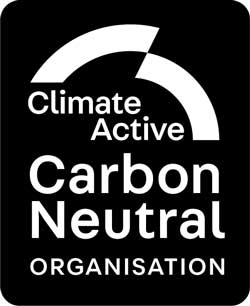The University of Tasmania is officially the tertiary sector’s world-leader in taking climate action, with the prestigious Times Higher Education (THE) Impact Rankings rating us number one in climate action globally for 2023.
1500+
Universities ranked
THE World University Rankings rate more than 1500 universities from around the world, including the most esteemed, comparing them across a range of metrics.
17
Sustainable Development Goals
Since 2019, THE has included its Impact Rankings table, which rates more than 1500 universities against the United Nations’ 17 Sustainable Development Goals (SDGs), covering socio-cultural, environmental and economic sustainability.
#1
In climate action globally
For goal SDG 13, Climate Action, the University of Tasmania scored best in the world, and we ranked 5th in the world overall, against all the SDGs combined.
So, what are these SDGs all about?
The SDGs cover a range of sustainability categories and we scored highly in several of them. We excelled in the SDGs for Life Below Water (3rd) and Life on Land (4th).
SDG 13, Climate Action, specifically rates a university’s research on climate change, their use of energy, their preparations for dealing with the consequences of climate change, and efforts to educate and inform the broader public about the importance of taking action.
Fortunately for us, we were able to demonstrate fairly easily that we are addressing these criteria, because, just like the THE Impact Rankings, our Strategic Framework for Sustainability (PDF 2.5 MB) and Sustainability Policy (PDF 161.1 KB) are also directly informed by the UN’s Sustainable Development Goals.
What does the Climate Action goal specifically measure?
SDG 13 Climate Action measures a university’s performance in four areas:
- Research on climate action
- Low-carbon energy use
- Environmental education measures
- Commitment to carbon neutrality
The research category looks at the number of published papers by our researchers, and the proportion of those papers published in the top 10% of journals.
Low-carbon energy use is determined by the amount of low-carbon energy used by the university and the proportion of electricity sourced from low-carbon sources.
Environmental education takes into account local education and awareness campaigns, efforts to inform and support government and NGOs on climate change adaptation and climate change disaster planning.
And to prove our commitment to carbon neutrality we needed to demonstrate not just that we had committed to the task, but that we had set a target date, which is a minimum 50% reduction on our gross emissions by 2030.
Globally, our researchers have been at the leading edge of climate change for about 30 years and our researchers have published over 400 titles on climate change and climate science since 2016.
Our Climate Futures Group was created specifically to bridge the gap between scientific research and the needs of industries, communities and government, to support their decision making.
Additionally, our Tasmanian Policy Exchange was established in 2020 to work with government and the community to address policy issues where our expertise can help improve Tasmania’s future.
And four University of Tasmania scientists were lead authors of the AR6 IPCC Working Group II report, Climate Change 2022: Impacts, Adaptation and Vulnerability.
We closely monitor and control our energy use through energy use in buildings is monitored regularly through meters and many building HVAC areas are controlled in real-time by the Building Management System (BMS). Our Energy Strategic plan 2018-2022 (PDF 2.0 MB) also outlines our strategic initiatives to improve our energy efficiency and self-generate renewable energy. Some of our initiatives include switching to low-energy LED lighting and installing solar panels.
We are involved with a range of projects aimed at helping our greater community to take meaningful climate action, as well as our on-campus initiatives like introducing the Sustainable Living courses, and a Sustainability major that is available for most of our bachelor’s degrees.
The University hosts the annual Global Climate Change Week, setting up local and coordinating international activities related to climate change. We are also part of the Curious Climate program, encouraging public engagement with scientific information and experts.
We assist local and regional organisations with drafting climate action plans and cooperate with both state and local governments with their planning for climate change risk/disaster and monitoring, with projects such as the work done through our Tasmanian Policy Exchange. We are key players in both Education for Sustainability Tasmania and the Climate Justice Network, who focus on climate adaptation.
 The University of Tasmania has been certified carbon neutral by Climate Active since 2016 and we monitor and have detailed plans to achieve significant reductions from all reportable emissions sources.
The University of Tasmania has been certified carbon neutral by Climate Active since 2016 and we monitor and have detailed plans to achieve significant reductions from all reportable emissions sources.
And in response to the latest report from the UN’s Intergovernmental Panel on Climate Change, the University has developed the Emissions Reduction Strategic Plan 2022-2030 (PDF 2.0 MB). This is our ambitious plan to reduce gross emissions by at least 50% by 2030, from a 2015 baseline year, well ahead of current global standards.